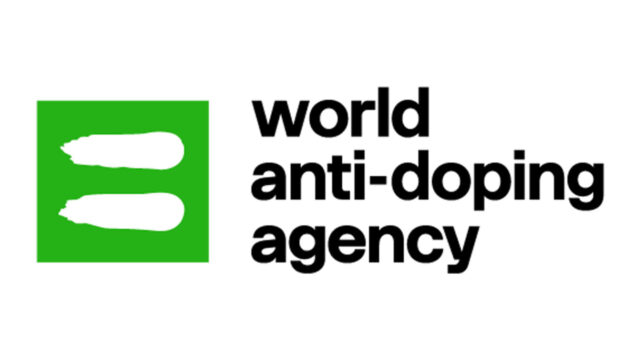By Braden Keith on SwimSwam

The World Anti-Doping Association has responded to reporting by the New York Times, ARD, Herald Sun, and others, saying that all normal processes and procedures were followed in the case of 23 Chinese athletes who tested positive for a banned substance prior to the Tokyo 2020 Olympic Games. The athletes were not suspended after an investigation concluded that the positive tests were the result of contamination.
New York Times reporting said that “Experts in antidoping, drug-testing and compliance interviewed by The Times said the handling of the case of the Chinese swimmers and the lack of disclosure about the positive tests ran counter to long-established precedents meant to ensure transparency, accountability and competitive fairness in elite sports,” but WADA says that “The data held by us clearly showed that there had been no attempt to hide the positive tests as they had been reported in the usual way by the Chinese authorities.”
WADA confirmed the 23 positive tests, but rejected reporting that there was anything unusual about the case or any cover-up.
WADA’s full recounting of the process is below:
“WADA was notified in June 2021 of the decision by the China Anti-Doping Agency (CHINADA) to accept that the swimmers had tested positive in early 2021 for TMZ after inadvertently being exposed to the substance through contamination. As it always does, WADA carefully reviewed the decision and, in this instance, requested the full case file. As part of its review, WADA collected additional, unpublished scientific information on TMZ and consulted with independent scientific experts to test the contamination theory and also whether low doses of TMZ could have benefited the athletes during a swimming competition event. During this review process, which spanned several weeks, scientists and external legal counsel thoroughly put the contamination theory presented by CHINADA to the test. It was not possible for WADA scientists or investigators to conduct their enquiries on the ground in China given the extreme restrictions in place due to a COVID-related lockdown. WADA ultimately concluded that it was not in a position to disprove the possibility that contamination was the source of TMZ and it was compatible with the analytical data in the file. WADA also concluded that, given the specific circumstances of the asserted contamination, the athletes would be held to have no fault or negligence. As such, and based on the advice of external counsel, WADA considered that an appeal was not warranted.”
WADA Senior Director, Science and Medicine, Prof. Olivier Rabin, said: “The WADA Science Department reviewed this case thoroughly in June and July 2021. Indeed, we even sought new pharmacokinetic and metabolism information on TMZ from the manufacturer and tested several hypotheses, including doping strategies with low TMZ doses, in assessing the plausibility of the contamination scenario that was presented to WADA. Ultimately, we concluded that there was no concrete basis to challenge the asserted contamination. Indeed, the contamination scenario was further supported by the combination of the consistently low concentrations of TMZ as well as no doping pattern with several athletes presenting multiple samples collected over the course of several days which fluctuated between negative and positive (and vice versa). In all transparency, we communicated the conclusions of our scientific review to internal and external investigators, including the International Testing Agency.”
In 2022, the International Testing Agency raised issues with WADA regarding a possible misreporting of the TMZ samples. This was independently reviewed by WADA Intelligence and Investigations Department, which concluded that proper procedures had been followed and that there was no evidence of wrongdoing. The United States Anti-Doping Agency (USADA) then contacted WADA by email in April 2023 about the TMZ cases. It advised WADA of a tip from an unspecified source that the positive TMZ cases had been hidden. This information was clearly erroneous in that the positive TMZ cases had been reported and decided by CHINADA, as well as thoroughly reviewed by both WADA and World Aquatics, nearly two years prior. USADA had also contacted WADA in 2020 (before the positive TMZ cases even arose) with respect to allegations (again from an unspecified source) of doping cover-ups within Chinese swimming. These allegations were (again) entirely unsubstantiated and WADA advised that the threshold to open an investigation was not met. However, WADA did offer to reassess the situation if USADA provided any evidence at all, which it did not. WADA I&I also offered to interview the USADA source but this offer was not taken up.
WADA Director, Intelligence and Investigations, Gunter Younger, said: “At every stage, WADA I&I followed all due process and diligently investigated every lead and line of enquiry in this matter. The information provided to us by USADA and others was reviewed on each occasion in line with our normal procedure, and assessed according to the criteria stipulated within our Confidential Source Policy. The data held by us clearly showed that there had been no attempt to hide the positive tests as they had been reported in the usual way by the Chinese authorities. Therefore, based on the available information and a lack of any credible evidence, the threshold for WADA I&I to open an investigation was not met.”
SwimSwam: WADA Says That Chinese Positive Doping Tests Were Reported Via the Normal Channels



















You must be logged in to post a comment Login